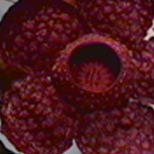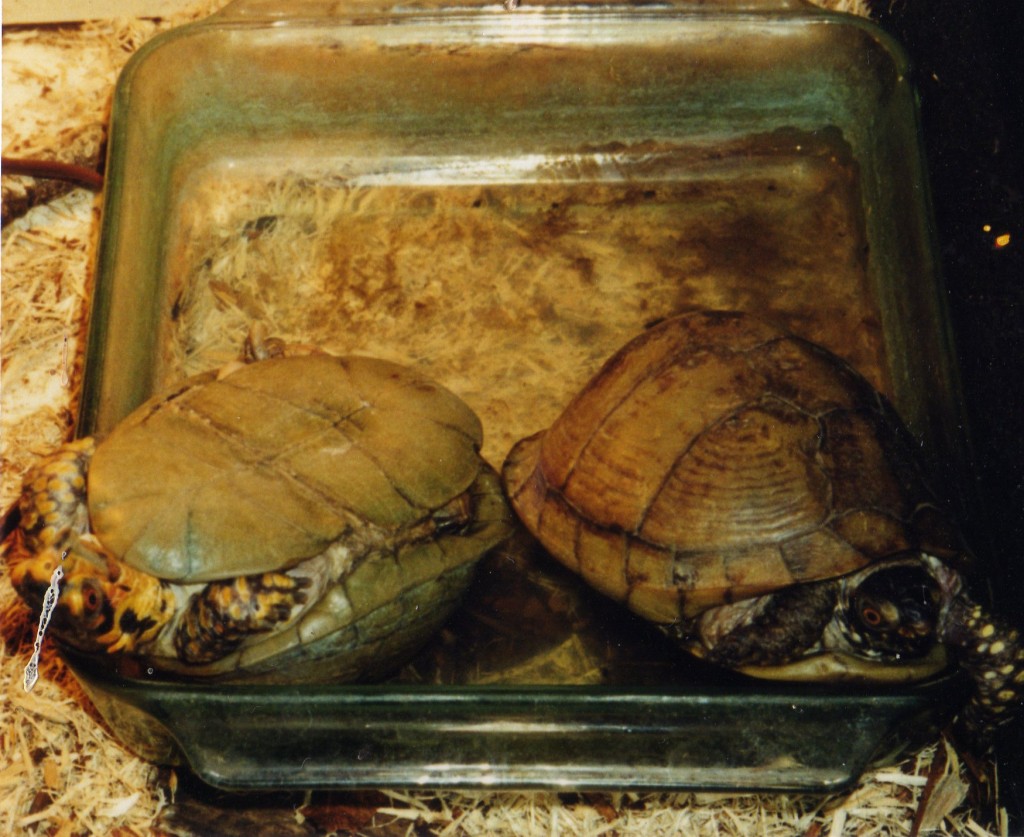isadora
For forty-one years I have been intensely fond of her. Then one morning last week, I found her lying on the wood chips of her terrarium, frozen in mid crawl, her eyes closed tight and oddly withered into her leathery, beaky skull. Neither prodding nor cooing nor a soak in a dish of tepid water elicited the hoped for wriggle of the neck or the twitch of a scaly leg. Isadora at long last had died, though I can still scarcely believe it.
It was the spring of 1969 when I’d first got her, sending away for her from a mail order pets ad at the back of a comic book. I was a small boy living in suburban Toronto. I had wanted a friend for my box turtle Marmaduke, whom I had acquired two years before in the pet section of a brand new department store, in a new shopping plaza that had just superimposed itself onto the sleepy, Upper Canadian streetscape of my small town home. I still remember sealing my five American dollars into an envelope and dropping it into the red void of the corner mailbox.
As if by magic, a couple of weeks later, a package arrived, postmarked Hermosa Beach, California, an impossibly exotic sounding place at an impossibly exotic southerly latitude. I imagined a place full of Flintstones style houses and curly-fronded palm trees, (which was not far from the truth as I found out many years later) I carefully cut through the packing tape, lifted off the lid of the little carton and caught my first glimpse of her exquisite horn-colored shell. She’d sealed herself in, the way box turtles do, barricading her soft bits behind her hinged plastron to wait out the long, bumpy journey into uncertain future.
Of course turtles might not have a sense of the future. But they live so very long. Perhaps life for them is some kind of infinitely extended present. It took over an hour for her to relax just enough to give me a glimpse of her mottled head. For the longest time , even the smallest movement would cause her to pull it back into her shell with a hiss of expelled air as its horny scutes snapped closed again.
It was my mother who named her Isadora, though no one remembers why. Isadora remained shy throughout her life. She was already an adult when she arrived. No doubt she was traumatized, wrested perhaps from some peaceful forest glade by some gruff collector. I hadn’t thought about her provenance at that time, but to acquire a wild-caught turtle now would be unthinkably immoral, given the imperiled state of turtles world wide. After she’d settled down, she would range the perimeter of my bedroom during the day and nap in a corner or bask for awhile in a pool of ephemeral sunlight. In warm weather, I would take her (and the rather libidinous Marmaduke) into the yard to feast on earthworms and sun-softened fruit. The pair of them would spend the nights and cold spells sequestered in their terrarium, which, with the aid of a ramp, they could enter and leave at will.
And so it went on through the decades. I grew up fast and by seventeen left home, but I took my turtles with me almost everywhere, even mailing them to myself on occasions when I had to cross the continent. Over the years, they have shared the hovels, artist lofts, apartments and houses I have lived in, seeing me through the highs and lows of my with their somber reptilian eyes – Isadora’s a warm brown and Marmaduke’s flaming red. Despite their steadfast attempts at procreation, it makes me sad to think that I was never able to successfully incubate a single one of the leathery eggs Isadora laid. Somehow they always shriveled up on me, despite the elaborate contrivances I came up with to keep them warm.
I’m not sure how, or if, box turtles grieve. Right now, Marmaduke is methodically devouring a ramekin of organic dog food after which he will probably bask under his heat lamp for a while before retiring beneath the book shelf for a couple of days of napping. Meanwhile, the relentless Pacific rain pounds against the window of my room and the corpse of his mate of forty-one years lies buried under a hazel tree in the yard. Everything must end, I suppose, even the lives of a very old turtle, although exactly how old she was remains uncertain. She might have been as old as twenty when she came into my care all those many years ago. So goodbye Isadora, my shy and ancient friend. A long time ago, you crawled out of the soft earth somewhere as a little hatchling, packed in your own armored suitcase to make your way with in this world. Thank-you for spending so much of your time with me. May you have the sweetest turtle dreams. You will always be in my heart.





Hey Ollie -are those the same turtles you had in Johnson Hall Second South? I lived down the hall from you with Gary. Watched your transformation happen in 1977, then didn’t see you around too much. You have retained your fascination with turtles and plants I see.
Cheers
Paul
Yup! These would have been the same turtles you saw way back then. Sad to have one die after all this time. Thanks for checking in.. All the best,
O.